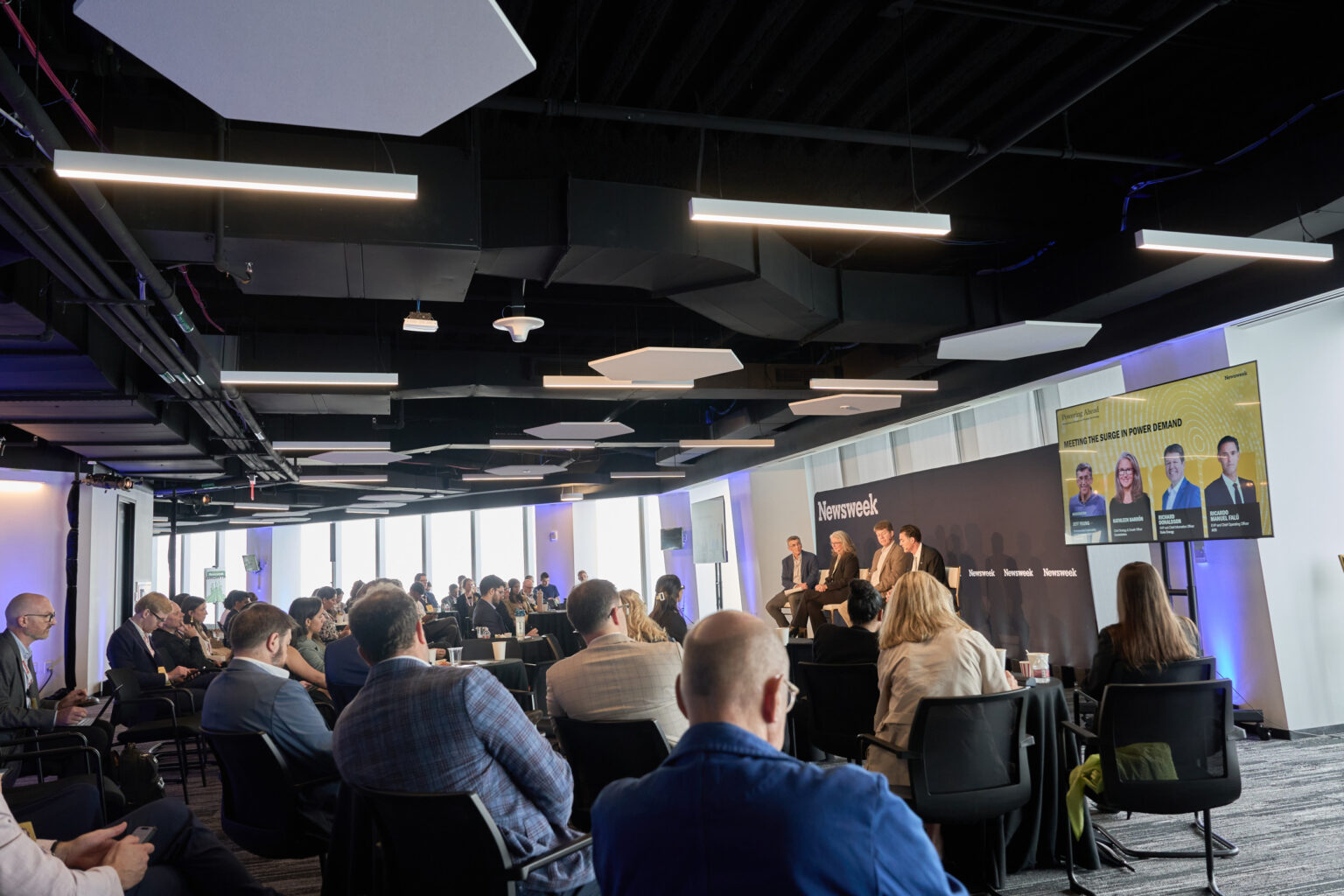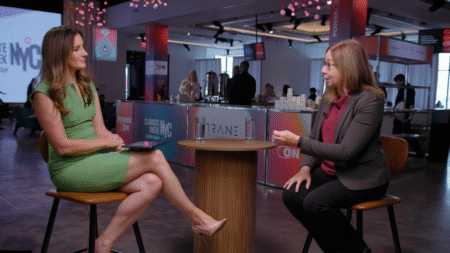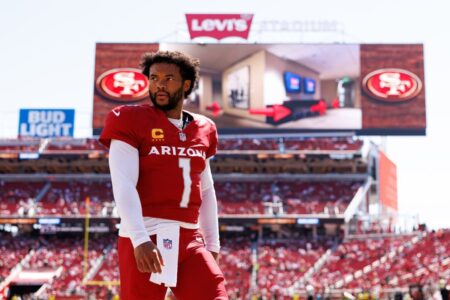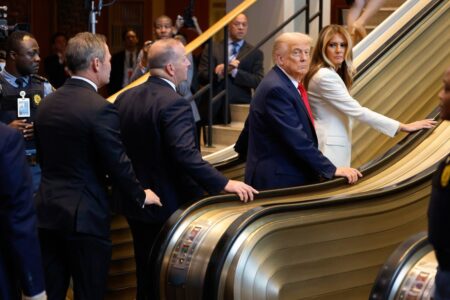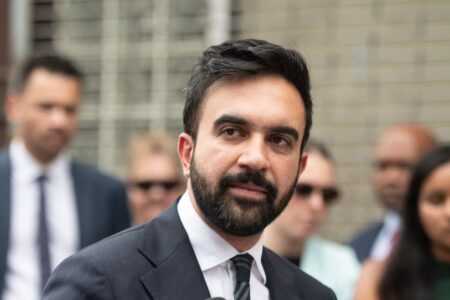“It’s a wonderful time to be an investor in the green future.” That was the hopeful message Sir Andrew Steer delivered at Newsweek’s “Powering Ahead: Innovations in Energy and Plastics Technology” event at the offices in One World Trade Center on Thursday, September 24, 2025.
Steer was the former president and CEO of the Bezos Earth Fund and currently sits on the Angeleno Group advisory board and is a professor in practice at the London School of Economics and Political Science.
A decade after the Paris Climate Agreement set international targets for greenhouse gas emissions to slow global warming, solving the climate crisis still feels daunting. And with the Trump administration rolling back several green energy policies, the prospect of finding real solutions can feel grim.
But leaders in the sustainability field remain optimistic that actionable solutions are possible.
“There’s a lot to be depressed about, but actually there’s a lot to be cheerful about,” he said during his one-on-one discussion with Newsweek’s Environmental Sustainability and Governance Editor Jeffery Young. “It’s important to remember that, as they say, elections change lots of things, but they don’t change the laws of physics, and they also don’t change the rules of economics.”
Thursday’s event, sponsored by Kia, brought together leaders in energy storage, auto manufacturing, packaging and utilities to share their strategies to build a more affordable, reliable and clean infrastructure.
Up on the 72nd floor, the 360-degree view from Lower Manhattan was gray. The rainy morning brought cloud cover and rain as the backdrop to the climate conversation. Panels and fireside chats gathered executives from companies like Amazon, PG&E and Electrify America to tackle the climate movement’s most pressing issues.
Panels tackled topics like green energy transition in a divided political landscape, the best approaches to energy battery storage, innovations in data centers, the transition from gas to electric vehicles, ending plastic waste, meeting rising energy demands and harnessing natural fuel resources.
Candice Eng, an attendee from Ink Communications, was happy to see the diverse array of topics covered during the event.
“I liked that it was like not just like purely energy topics, but also you did cover batteries and data centers,” she told Newsweek. “I was really fascinated to hear so much about like EVs [electric vehicles] this week.”
Newsweek’s Jeffery Young said in his opening remarks that he wanted to lean in to solution-based conversations to share the “good news” in the sustainability space.
The day began with an overview of clean energy storage with Jason Grumet from the American Clean Power Association and a panel discussion about how clean energy transcends politics by making good business sense.
The panel on “Tapping the Full Potential of Grid Batteries” examined the potential of virtual power plants (VPPs) to meet growing energy demand.
After speaking on the panel, sonnen CEO Blake Richetta told Newsweek that his mission is building the energy system of the future.
“It’s what all of us are passionate about, to get the message out that it is an urgent time [and] to start to build that energy system,” he said of his fellow panelists. “It is the right time and that we have all the tools to do it.”
Regan George, the CEO of SOLRITE Energy, said VPPs and grids are no longer theory; they are actively implementing and dispatching VPPs in the market today.
“We wanted to really get that message across that this is no longer theory,” he told Newsweek after his panel. “It’s practical, it’s in practice, it’s economically viable and it’s economically beneficial.”
One of the most anticipated discussions was between Newsweek’s Jeff Young and two of Amazon’s climate leaders.
Sally Fouts is the global lead of The Climate Pledge at Amazon. She said no company, even those with massive resources, can solve climate challenges alone. Getting companies to work together to share their “different pieces of the puzzle” to provide different skills or approaches to solve pressing issues in new and better ways.
She said the coalition Amazon is building can help everyone involved by boosting demand signals, leveraging policymakers and sharing research and other resources.
This includes the Amazon Sustainability Exchange, a resource aimed at “democratizing” Amazon’s learnings, Chris Roe, the director of worldwide environment for carbon at Amazon, said. The goal, he said, is mobilizing action through sharing best practices.
“It’s really important that we all stay ruthlessly pragmatic about how we make progress,” he noted on the panel. “We’re really leaning on expertise of others and contributing what we can to those problems.”
In between the packed on-stage programming, attendees had the opportunity to discuss what they learned from the panels and share how they are implementing sustainable practices within their own organizations.
The audience was full of representatives from top companies, including Henkel, Unilever, Samsung, Supreme, Accenture, Dell, Tiffany, LG Energy Solutions, JPMorgan, BP, Columbia University, The Ocean Cleanup, Finn Partners and No7 Beauty.
“Just hearing some of the real-time opportunities and challenges as it relates to AI adoption, as a technology company that’s contributing to powering that,” Betsy Schaefer from Fuel Cell Energy said. “There’s so much to solve for, so that’s really great to hear some of the discussion on that.”
After lunch, which included options of chicken or vegetable dumplings and chicken parmesan or turkey meatballs, there were two crucial discussions about electric vehicles moderated by Newsweek’s Senior Autos Editor Eileen Falkenberg-Hull.
Rivian Senior Director of Sustainability Megan Farrell highlighted that consumers don’t have to choose between performance and sustainability when picking their next car.
“While we are laser focused on producing as many superior electric vehicles as possible and advancing the electrification of transportation, we see it as both an opportunity and an obligation to weave sustainability into our daily practices, so that ultimately, the full life cycle of our vehicles contributes to a future that we’re really proud of,” she said.
1 of 8
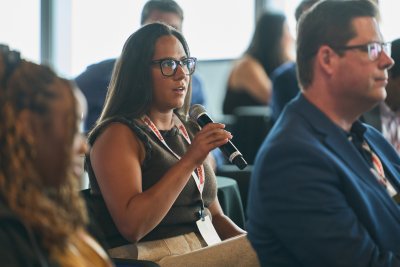
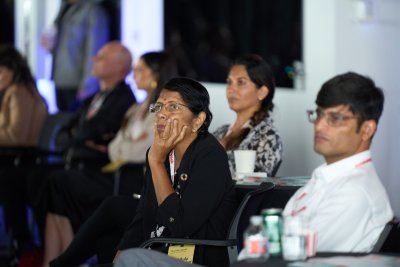
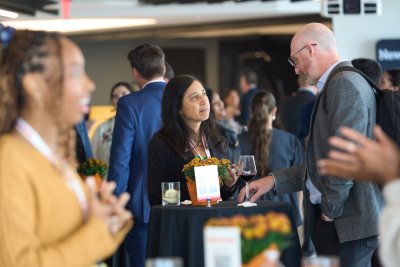
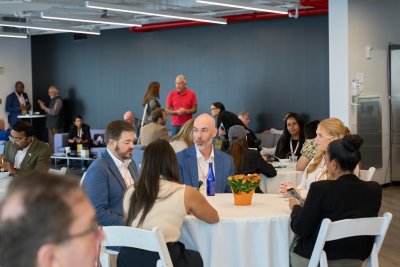
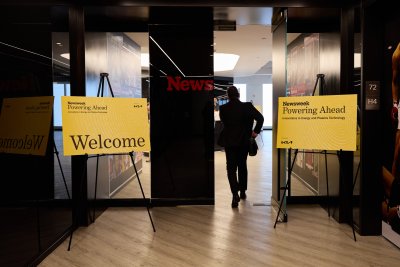
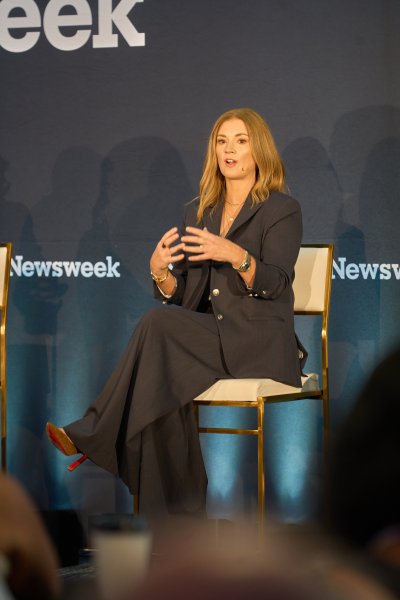
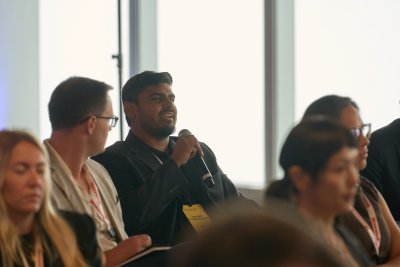
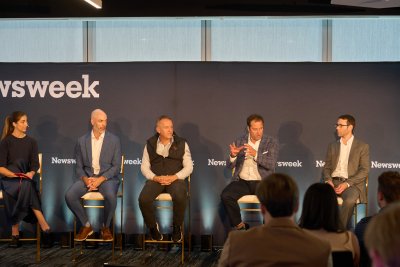
While innovations in renewable energy are making great strides in climate action, the impact of plastic waste and emissions cannot be ignored.
Ravyn Williams is a cardiovascular provider from Los Angeles who represents Taki2Go, a company aimed at plastics-reducing technology. As an attendee, she was particularly interested in the discussion about plastic waste reduction within the circular economy.
“What’s most interesting is hearing about the action that’s taking place, not just sustainability goals, not just ambitious goals, but seeing the action and the results of what they’re actually putting forward,” she told Newsweek during lunch.
One thing Williams wants people to understand about sustainability is the connection between environmental and health concerns.
“Waste is not just a global issue in terms of climate health, but also public health,” she said. “I’m a first responder in that regard, so I’m right at the crux and the intersection of climate change and human health.”
During the “Innovating to End Plastic Waste” panel, Nick Mallos, the vice president of conservation at Ocean Plastics for the Ocean Conservancy, said product bans for single-use plastics and financial incentives that hold producers responsible for the lifecycle of their products are making a difference in the effort to reduce plastic waste.
While sitting on the panel, Nick Sandland, the chief business officer at Algenesis Labs, took off one of his shoes and passed it around the audience as an example of a biodegradable product that can reduce both waste and emissions. The shoe is fully compostable. But don’t worry, he said, it won’t fall apart while on your feet.
He said the shoe “demonstrates to people that you can make high-quality, high-performing products that are bio-based.”
“That was really exciting to see,” attendee Emily McCormick from Million Smiles Global said to Newsweek. “They looked durable, they looked comfortable [and] they did not look like it was a biodegradable product. It was really exciting to see and be able to touch it and feel what it would be like as a customer to buy something that is biodegradable.”
Towards the end of the day, director and playwright Sophie Hunter joined the “A New Asset Class: Nature as Infrastructure” panel to talk about her work, shining a light on the importance of protecting salt marshes.
She said her goal is to “move people to action” and get people away from feeling paralyzed, overwhelmed or disenchanted.
With each new panel, the rain outside slowed and the cloud cover receded. As guests enjoyed the crab cakes and cocktails during the final networking reception, the sun had finally arrived, revealing clear views of Midtown Manhattan.
One of the guests noted that, given the overwhelming amount of ‘depressing’ coverage of sustainability, it was refreshing to hear people openly discussing their progress in moving the industry forward
Read the full article here





